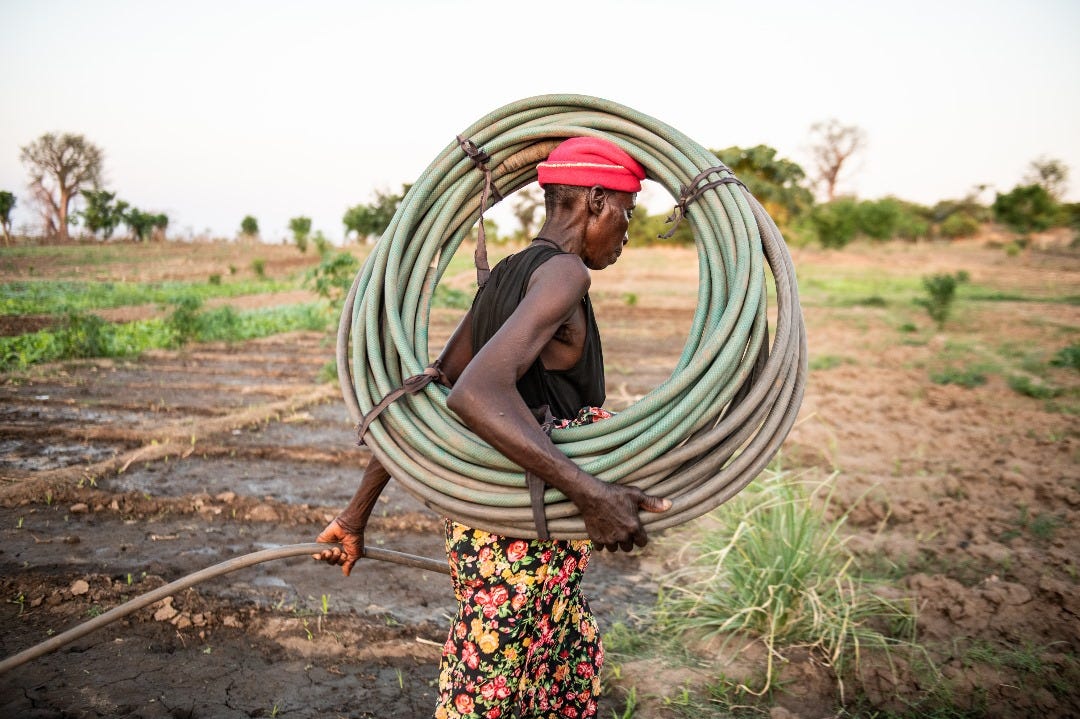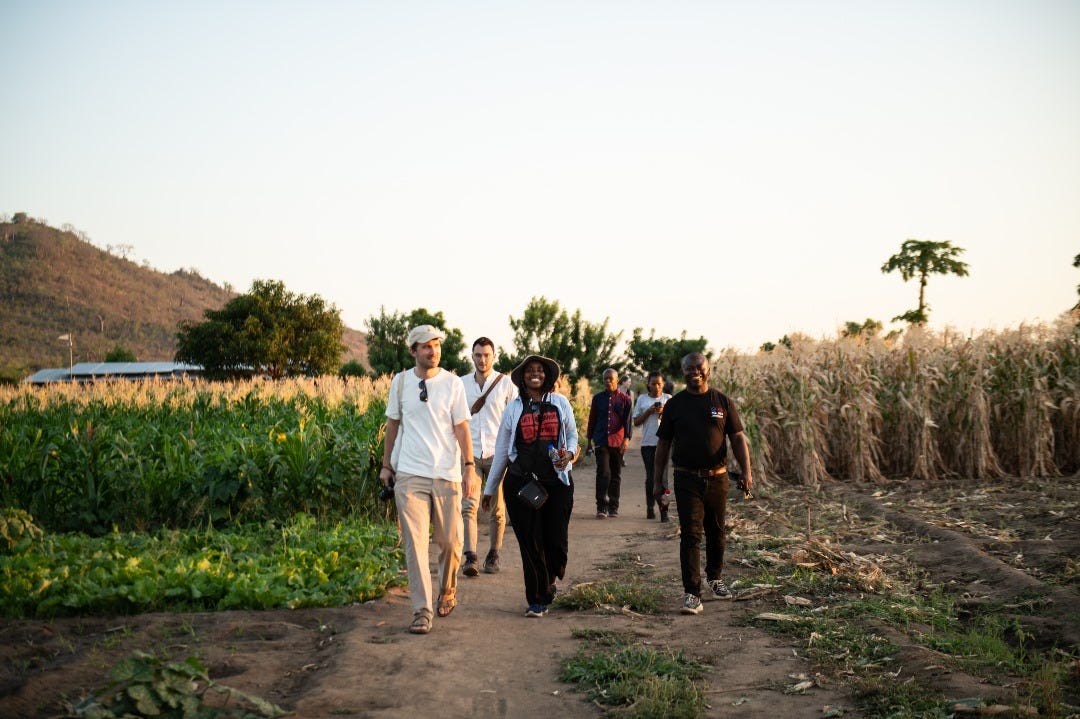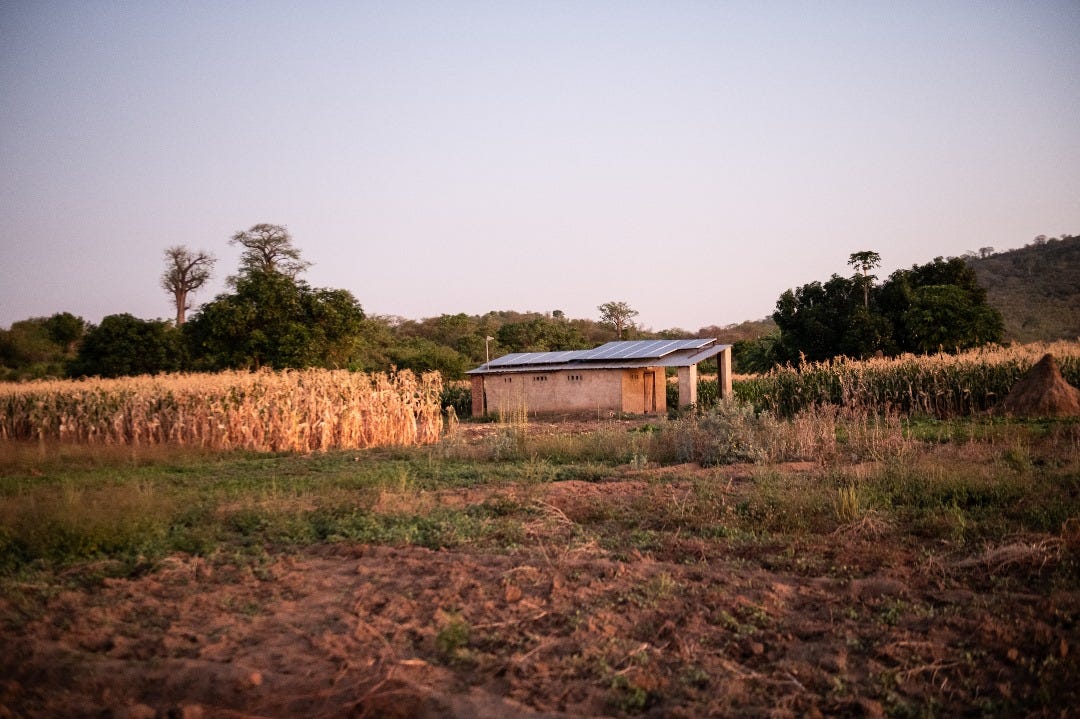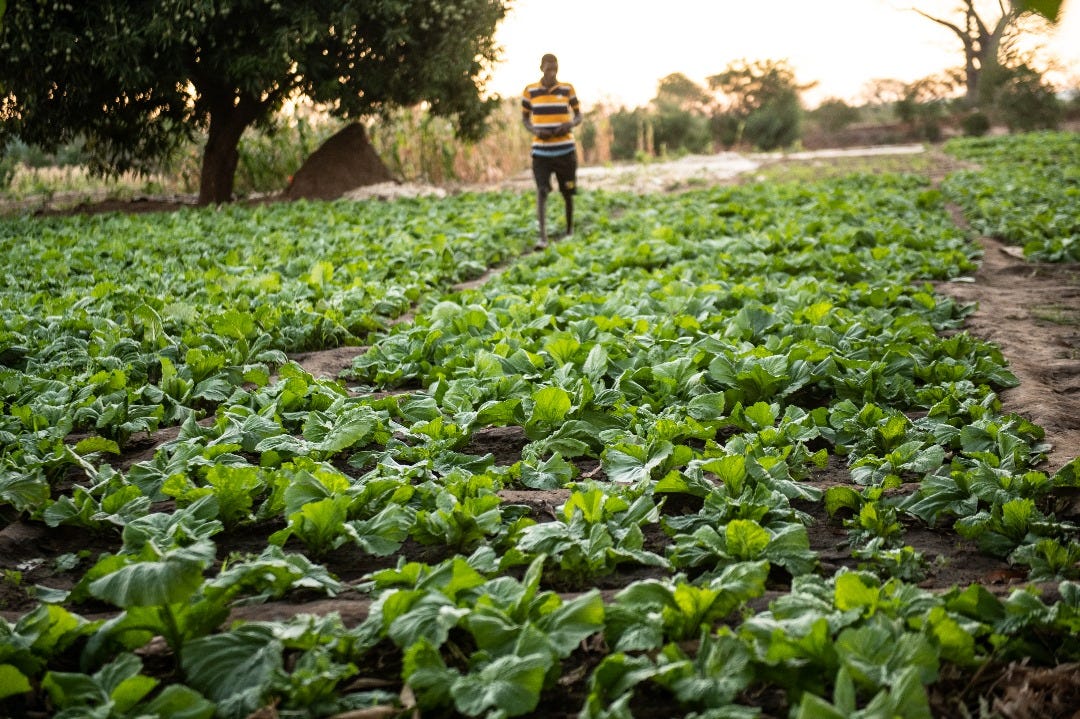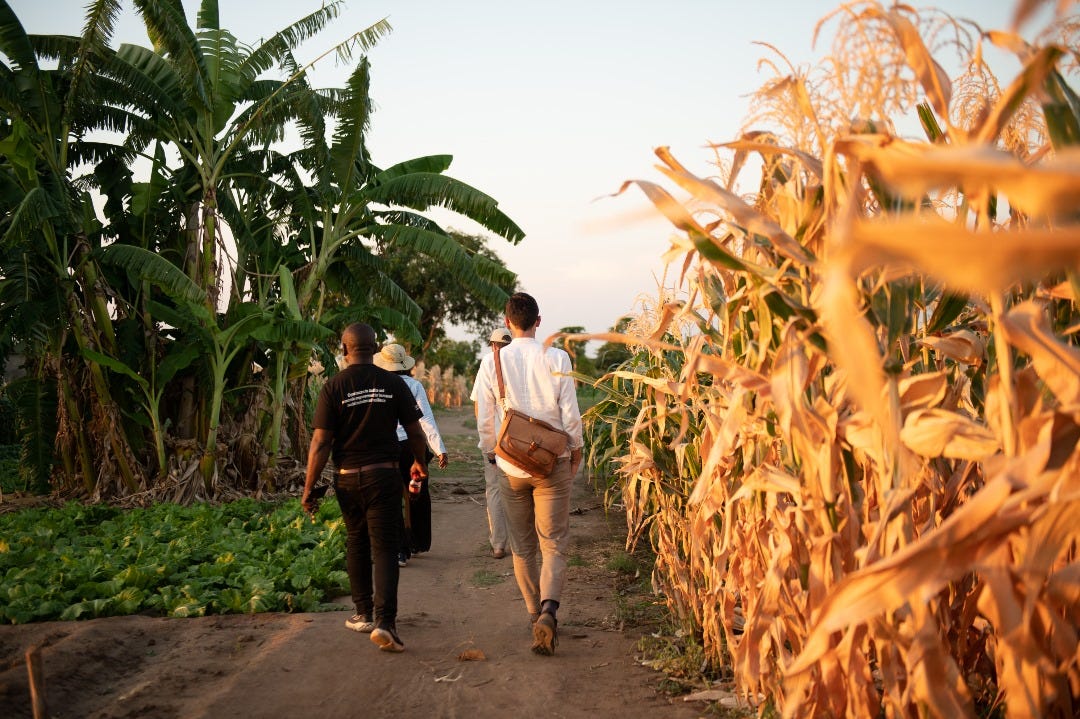Nsanje's Tiyanje Irrigation Scheme: A Ray of Hope Amidst Climate Change
It serves as a model for climate adaptation, demonstrating how local initiatives can provide a lifeline for communities grappling with the growing impacts of climate change.
NSANJE, Malawi –- Malawi, a landlocked nation in southeastern Africa, is grappling with the harsh realities of climate change. Droughts and floods, once infrequent occurrences, have become more frequent and intense, devastating communities that rely heavily on agriculture. In the southern district of Nsanje, one small irrigation scheme is offering a glimmer of hope amidst these challenges, writes Winston Mwale.
Established in 2012, the Tiyanje Irrigation Scheme, with its solar-powered pumps and a network of pipes, provides a lifeline for participating farmers, allowing them to cultivate crops even during dry spells and ensuring food security for their families.
Medson Govati, the chairperson of the scheme, explains that the initiative is thriving, enabling community members—65 women and 49 men—to grow crops on 105 plots, even during periods of drought.
"We have farm produce, unlike other places where they have been affected by floods," Govati states.
This success is a direct response to the challenges of climate change, allowing consistent harvests even when other areas struggle.
The community has been able to harvest maize, securing a vital food source and providing an additional income stream.
The income generated from the scheme has positively impacted community education, with Govati proudly sharing, "One of my children is in secondary school. The other one is in secondary school. I have five children. Others are in primary school."
The community's commitment to the scheme is evident in their efforts to expand it independently. They have extended the scheme beyond its initial boundaries, demonstrating their initiative and resourcefulness.
The impact is clear: farmers have successfully grown maize and vegetables during dry periods, contrasting sharply with areas where communities resort to desperate measures, like consuming cooked mangoes for survival.
However, Govati acknowledges the scheme's limitations. The most pressing challenge is its restricted capacity.
"One of the challenges we have is that the scheme only catered for 100 people. A small number would have loved to let the scheme accommodate more," he highlights.
This limited capacity creates a sense of exclusion and fuels conflict within the community as those unable to benefit from the scheme express their frustration.
The insufficient water supply poses another significant obstacle to expansion.
"The challenge is that the water we have cannot accommodate everyone; otherwise, it would have helped everyone so that we equally benefit," Govati explains.
Currently, only 9 out of the 200 hectares allocated to the scheme are being utilized, showcasing the need for additional pumps to increase the water supply.
Despite the community's desire to expand the scheme, financial resources remain a barrier.
This financial constraint is a common challenge in developing countries, where limited access to funding hinders the implementation of vital infrastructure projects.
The urgency to expand the scheme grows, especially in light of escalating climate threats.
Madalitso Mwale from the Malawian Department of Disaster Management (Dodma) notes, "In the past 10 years we have seen that more and more weather disasters have affected our country, and now they are also hitting areas that used to be spared. It’s a clear sign of climate imbalance."
Cyclone Freddy, which struck Malawi in March 2023, serves as a stark reminder of the country's vulnerability.
The cyclone caused widespread flooding, mudslides, and destruction, displacing over half a million people and resulting in hundreds of deaths. Nsanje was among the districts hit hardest.
The Tiyanje Irrigation Scheme showcases how irrigation can mitigate climate change impacts.
However, Malawi's government, while committed to climate action, faces financial constraints in addressing the widespread effects of climate change.
At the recent Africa Regional Conference on Loss and Damage held in Lilongwe, stakeholders discussed strategies for accessing funds to support climate-vulnerable communities.
Malawi hopes that its experience will encourage developed nations to increase climate finance assistance at COP29 negotiations.
Tiyanje Irrigation Scheme stands as a testament to the resilience of Malawian communities in the face of adversity.
It serves as a model for climate adaptation, demonstrating how local initiatives can provide a lifeline for communities grappling with the growing impacts of climate change.
However, the scheme's success hinges on securing the necessary financial resources to expand its reach and ensure a more secure future for the people of Nsanje.
DanChurchAid with funding from Grundfos financed the scheme in 2012 through a local organisation called CARD.




